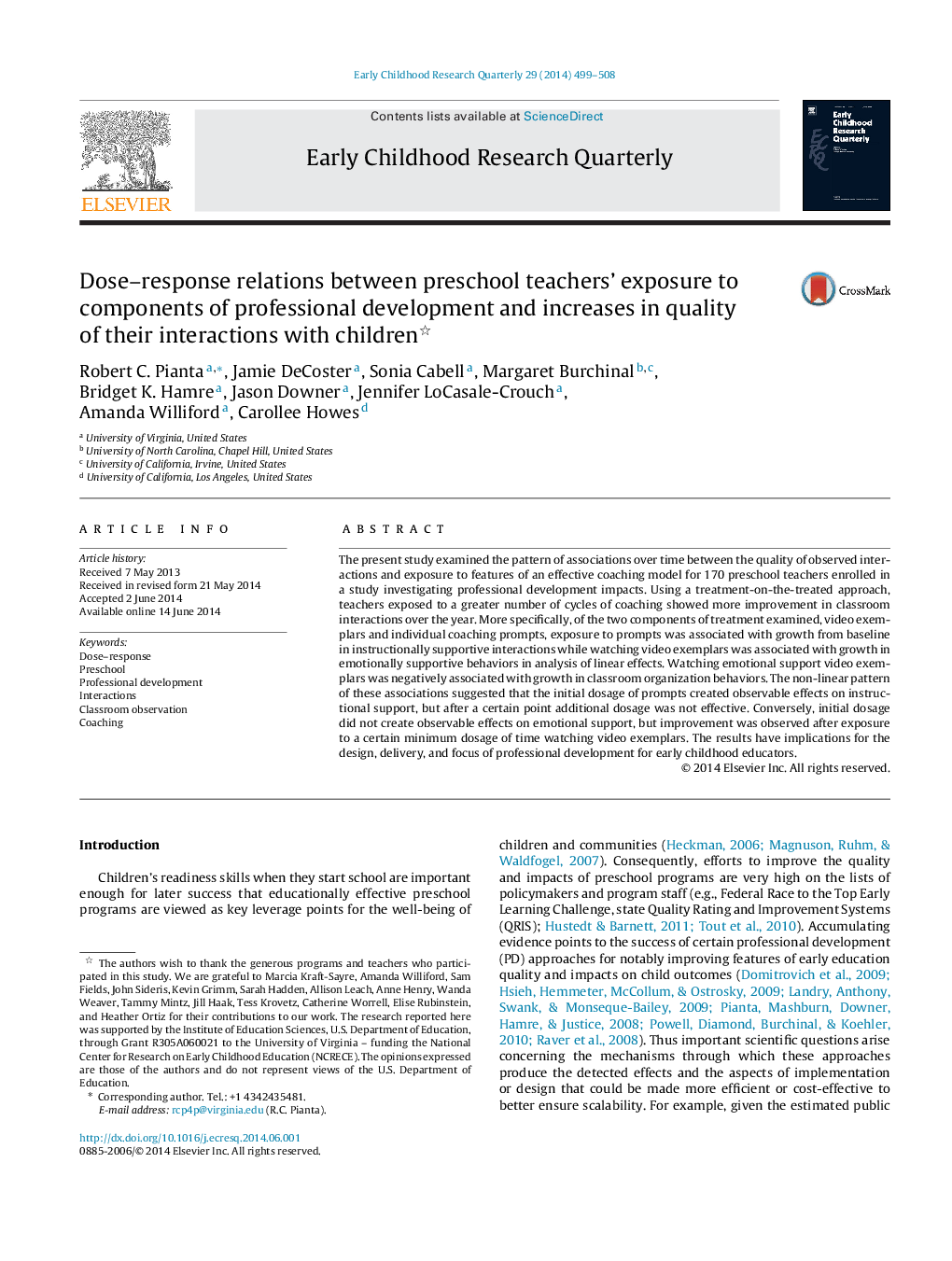| Article ID | Journal | Published Year | Pages | File Type |
|---|---|---|---|---|
| 353799 | Early Childhood Research Quarterly | 2014 | 10 Pages |
•Tested association between features of coaching and changes in domains of teacher–child interactions.•Different features of coaching predicted increases in different domains of teacher behavior.•Instructional interactions increased in quality as a function of focused feedback on teachers’ behaviors.•Emotionally supportive interactions increased when teachers were exposed to video examples of supportive behavior.•Results suggest different ways in which components of professional development may change teacher behavior.
The present study examined the pattern of associations over time between the quality of observed interactions and exposure to features of an effective coaching model for 170 preschool teachers enrolled in a study investigating professional development impacts. Using a treatment-on-the-treated approach, teachers exposed to a greater number of cycles of coaching showed more improvement in classroom interactions over the year. More specifically, of the two components of treatment examined, video exemplars and individual coaching prompts, exposure to prompts was associated with growth from baseline in instructionally supportive interactions while watching video exemplars was associated with growth in emotionally supportive behaviors in analysis of linear effects. Watching emotional support video exemplars was negatively associated with growth in classroom organization behaviors. The non-linear pattern of these associations suggested that the initial dosage of prompts created observable effects on instructional support, but after a certain point additional dosage was not effective. Conversely, initial dosage did not create observable effects on emotional support, but improvement was observed after exposure to a certain minimum dosage of time watching video exemplars. The results have implications for the design, delivery, and focus of professional development for early childhood educators.
